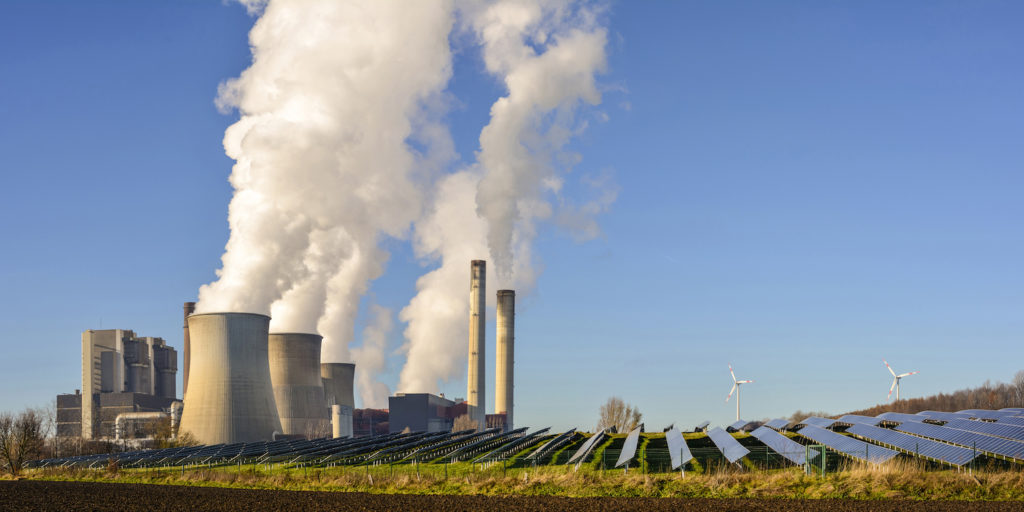In a major shift away from dirty fossil fuels, global banks are reviewing their coal investment policies amid rising concerns about climate change.
The latest to join the growing pool of lenders and financiers walking away from funding new coal power stations is U.K.-based Standard Chartered, which confirmed on Tuesday it was taking further steps to meet its commitment to supporting the 2015 Paris Agreement.
In a statement, the group announced that, save where there is an existing commitment – currently it has 14 project financing facilities in seven markets – it will cease financing new coal-fired power plants, globally, following detailed consultation with a range of stakeholders.
In addition, as part of its sustainability agenda, Standard Chartered says it has already committed to financing and facilitating US$4 billion worth of clean technology by 2020. It is more than halfway toward meeting that goal, it said.
“Climate change is one of the single biggest challenges society has to address. More than 1.1 billion people still do not have access to reliable power but recent developments in technology mean that alternative sources are increasingly available to meet that need without the impact of coal-fired power on the environment,” Standard Chartered CEO, Bill Winters said in the statement.
The group’s updated position on power generation builds on its 2016 commitment to not provide financing for new standalone, non-captive thermal coal mines, and builds on wide range of commitments undertaken by other global financiers to exit or cut support for coal.
Last week, Japan’s Marubeni Corp., for instance, revealed plans to halve its 3 GW global coal-fired power portfolio by 2030, and double its holdings of renewable energy within the next five years, thus joining its compatriots Mitsubishi UFJ, Sumitomo Mitsui Banking Corporation, Mizuho Financial Group and Nippon Life Insurance, in tightening criteria on lending for coal power.
Popular content
Meanwhile, Europe’s largest bank, HSBC said in April it would largely stop funding new coal-fired power plants, oil sands and Arctic drilling, as part of its efforts to support a transition to a low-carbon economy.
This was followed by U.K.-based Barclays, which in May declared it had “no appetite” for financing greenfield thermal coal mining – an announcement that was closely followed by the Royal Bank of Scotland’s new package of energy financing policies, designed to reduce the bank’s exposure to fossil fuel investment.
Furthermore, world’s second largest reinsurer, Swiss Re announced in July it would not provide re/insurance to businesses with more than 30% exposure to thermal coal across all lines of businesses.
Over the last couple of years, global banking giants Amsterdam-headquartered ING, Deutsche Bank and France's BNP Paribas and Société Générale have also stepped away from financing coal, while the World Bank vowed to stop funding oil and gas extraction by 2019.
While the cut in coal-fired power financing is yet to take real effect on the industry, producers are presently generating significant returns on the back of a rebound in coal prices, following a slump that forced many to shut operations, shelve projects and cut jobs.
In one of the latest signs of the industry’s good health, U.S. coal producer Coronado announced on Monday it would seek to raise $1 billion in what would be one of the biggest mining floats globally and Australia’s largest coal initial public offering.
This content is protected by copyright and may not be reused. If you want to cooperate with us and would like to reuse some of our content, please contact: editors@pv-magazine.com.



1 comment
By submitting this form you agree to pv magazine using your data for the purposes of publishing your comment.
Your personal data will only be disclosed or otherwise transmitted to third parties for the purposes of spam filtering or if this is necessary for technical maintenance of the website. Any other transfer to third parties will not take place unless this is justified on the basis of applicable data protection regulations or if pv magazine is legally obliged to do so.
You may revoke this consent at any time with effect for the future, in which case your personal data will be deleted immediately. Otherwise, your data will be deleted if pv magazine has processed your request or the purpose of data storage is fulfilled.
Further information on data privacy can be found in our Data Protection Policy.